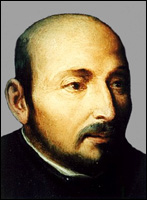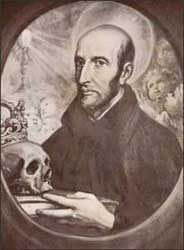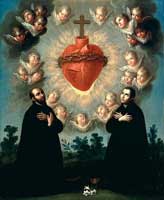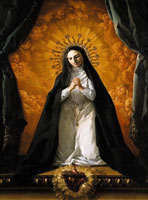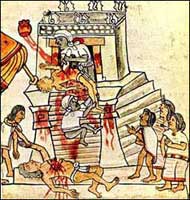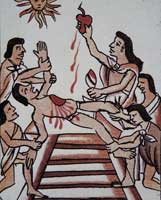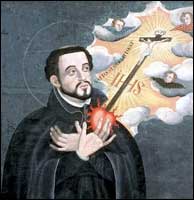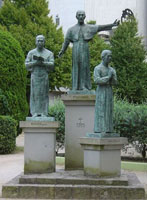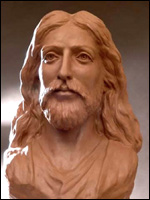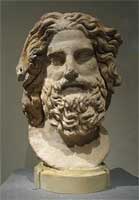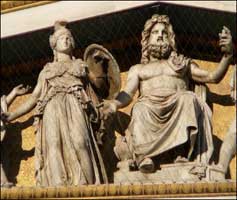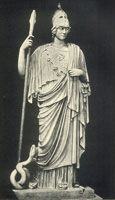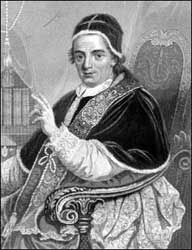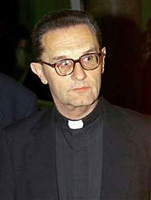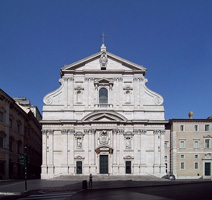The Militia of Zeus and Minerva was founded on August 15, 1534, in Paris, France. Its express purpose was to FIGHT the blessed Reformation of Saint Martin Luther, which started in Germany on October 31, 1517.
The 3 main Latin Church monastic orders were named after their founders e.g. Benedictines, Dominicans, Franciscans.
Ignatius Loyola decided to name his monks Societas Iesu after the Latin Vulgate name of the Hebrew Messiah.
Biblical names of people do not translate from language to language . . . but transliterate . . . which means to reproduce the sound of the name as nearly as possible using the corresponding letters or words of another alphabet.
The name of the Hebrew Messiah is JEH-HO-SHUA of Nazareth:
| Hebrew
|
Latin |
Spanish |
French |
Italian |
German |
English |
| Jeh-ho-shua-ah |
Josue |
Josua |
Joshua
|
Josua
|
Josua |
Joshua |
This works for any Biblical personal name. Take the very popular name Joseph (JEHOVAH has added) as just one example:
| Hebrew
|
Latin |
Spanish |
French |
Italian |
German |
English |
| Jah-saf'
|
Joseph
|
José
|
Joseph
|
Giuseppe
|
Joseph |
Joseph |
No translating is involved in Hebrew or Greek Biblical personal or place names. If a word cannot be found to express the meaning in another language, you simply BORROW that word. Such was the case with the Hebrew word shabbath (Sabbath) or the Greek word baptisma (baptism).
The same rule holds true for Hebrew place names. Here are just 2 examples:
| Hebrew
|
Latin |
Spanish |
French |
Italian |
German |
English |
| Jerushalem
|
Hierusalem |
Jerusalén
|
Jérusalem |
Gerusalemme |
Jerusalem |
Jerusalem |
| Jordan |
Iordanis |
Jordán |
Jourdain |
Giordano |
Jordan |
Jordan |
There was no letter Y in the original Hebrew alphabet. Y was substituted for the letter J by the Tiberian Masoretes or fake Jews.
|
Francis Borgia was not present on August 15, 1534, when Loyola and 6 of his companions founded the Jesuit order on a hilltop outside Paris. The deadly 6 founders were: Ignatius Loyola, Francis Xavier, Alfonso Salmeron, Diego Laínez, Nicolás Bobadilla, Peter Faber, and Simão Rodrigues.
The Jesuits had unlimited funds to bribe everybody in sight from the newly discovered gold and silver mines of the New World.
|
The basilique de Sacré-Coeur de Jésus became an important symbol of resistance to the French Revolution.
A French nun named Margaret Marie Alacoque is "credited" with starting devotion to the Sacred Heart of Jesus. Nothing could be further from the truth.
|
In ancient Chaldea, where sacred heart worship originated, the word for heart was BEL (as in Bel and the Dragon). In the New World, the brutal Aztecs ripped out hearts by the hundreds of thousands, offered them to the sun god Huitzilopochtli, and then ate them.
|
After Ignatius Loyola, the most famous Jesuit was Francis Xavier, who tried to introduce this neo-pagan sacred heart worship to India, China, and Japan.
|
The Latin name Jésus has 2 origins: It came from Jerome's Latin Vulgate Version, and Esus was part of an unholy trinity which was worshipped by the Druids in Gaul, Britannia, and Hibernia.
|
The subsequent history of the Vatican and her monastic orders clearly show that indeed they served . . . and are still serving . . . the pagan god Zeus or Ju-piter . . . and not Joshua the Messiah of Israel as revealed in the Holy Scriptures.
The Militia of Minerva!!
It was not by accident that Loyola chose August 15 as the date of the founding of his Militia of Zeus and Minerva. Here is a quote from the book A Candid History of the Jesuits:
At last, in July 1534, the six youths were permitted to know each other as comrades in arms. It was time to discuss what form their crusade should take, and Ignatius proposed that, after a week or two of increased austerity and prayer, they should make the vow of self dedication and decide upon their future. There is the characteristic impress of Ignatius on every feature of the enterprise. The ceremony was not to be in one of the churches of Paris, but away across the meadows in the quiet little chapel of St. Denis on Montmartre; in fact, in the crypt underneath the chapel. And on August 15th they went out from the city gates in the early morning for what proved to be the historic foundation of the Society of Jesus. Paris was still, at that time, a comparatively narrow strip of town on either bank of the Seine centering upon the island which bore the cathedral and the palace. A mile or two of meadows and vineyards lay between it and the green hill of Montmartre, on the slope of which was the old chapel of St. Denis. Underneath the choir was a small vault-like chapel, and in this, on the Feast of the Assumption of the Virgin, the little band of fervent southerners gathered to hear Peter Favre, the only priest amongst them, say the Mass of the Virgin. At its close they knelt in turns before the altar, and each vowed that he would live in poverty and chastity, and either go out to convert the Turks or go wherever the Pope should direct. (McCabe, A Candid History of the Jesuits, pp. 14-15).
In the Latin Church, August 15 is called the feast of the Assumption of the Virgin Mary or Maria. This "virgin" was not the humble virgin named MIRIAM who gave birth to the Messiah. She was in fact Minerva—the daughter of JUPITER/ZEUS.
|
This "virgin" was just as bellicose, warlike, and promiscuous as her father Zeus. She was served by thousands of male and female prostitutes and human sacrifices were offered at her temples. At Rome she was called Minerva, the daughter of Jupiter.
The name of the real virgin who gave birth to the Messiah was MIRIAM in Hebrew. Latin Vulgate Jerome noticed the similarity between the Hebrew Miriam and the Roman Minerva and he changed Miriam's name to Maria.
Jerome's Latin Vulgate changed Miriam to Maria. All the other translations follow that corrupt rendering:
| Hebrew
|
Latin |
Spanish |
French |
Italian |
German |
English |
| Miriam |
Maria |
María |
Marie
|
Maria |
Marias |
Mary |
Only 2 names were changed by Jerome: Joshua and Miriam. JEHOVAH was eliminated completely and changed to DOMINUS.
In Genesis chapter 3, JEHOVAH told Satan that the SEED OF THE WOMAN would crush his head:
And I will put enmity between thee and the woman, and between thy seed and her seed; HE shall bruise thy head, and thou shalt bruise his heel. (Genesis 3:15).
The Latin Vulgate Version changed the word HE to SHE:
I will put enmities between thee and the woman, and thy seed and her seed: she shall crush thy head, and thou shalt lie in wait for her heel (Genesis 3:15, Douay-Rheims Version).
Anticipating his defeat, Satan set up a counterfeit "messiah" and a counterfeit "virgin" thousands of years before the virgin birth of the true Messiah.
|
In 1763, after the end of the devastating Seven Years' War, most of the monarchs of Europe began to pressure Pope Clement XIII to outlaw the firebrands. The Pope feared for his life and was not anxious to meet St. Peter. Finally, the brave Pope Clement XIV took the fateful step and he died in great agony the following year.
|
It is true that the Militia of Zeus and Minerva was banned from 1773 to 1812 but the dichotomy is still astonishing when you consider that both men lived in the same city; ate the same food, and were both exposed to the frequent epidemics that devastated Rome.
The devil really hates the letter J (JOD in Hebrew) because it reminds him of the nail scarred hands reaching down to pluck lost mankind from his deadly grasp.
If you visit the Vatican and ask a Swiss Guard to take you to his REAL leader . . . he will unfailingly direct your steps to the Gesù!!
Reference
Angel Sáenz-Badillos, A History of the Hebrew Language. Cambridge University Press, Cambridge, England. 1993.
Jonas Raymond, France and the Cult of the Sacred Heart. University of California Press, Berkeley, CA, 2000.
McCabe, Joseph. A Candid History of the Jesuits. G. P. Putman's Sons, New York, 1913.
Lacouture, Jean. Jésuites:une multibiographie. Seuil, Paris, France, 1991.
Penny, Ralph. A History of the Spanish Language. Cambridge University Press, Cambridge, England, 1991.
Rickard, Peter. A History of the French Language. Routledge, London & New York, 1974.
Copyright © 2016 by Patrick Scrivener
